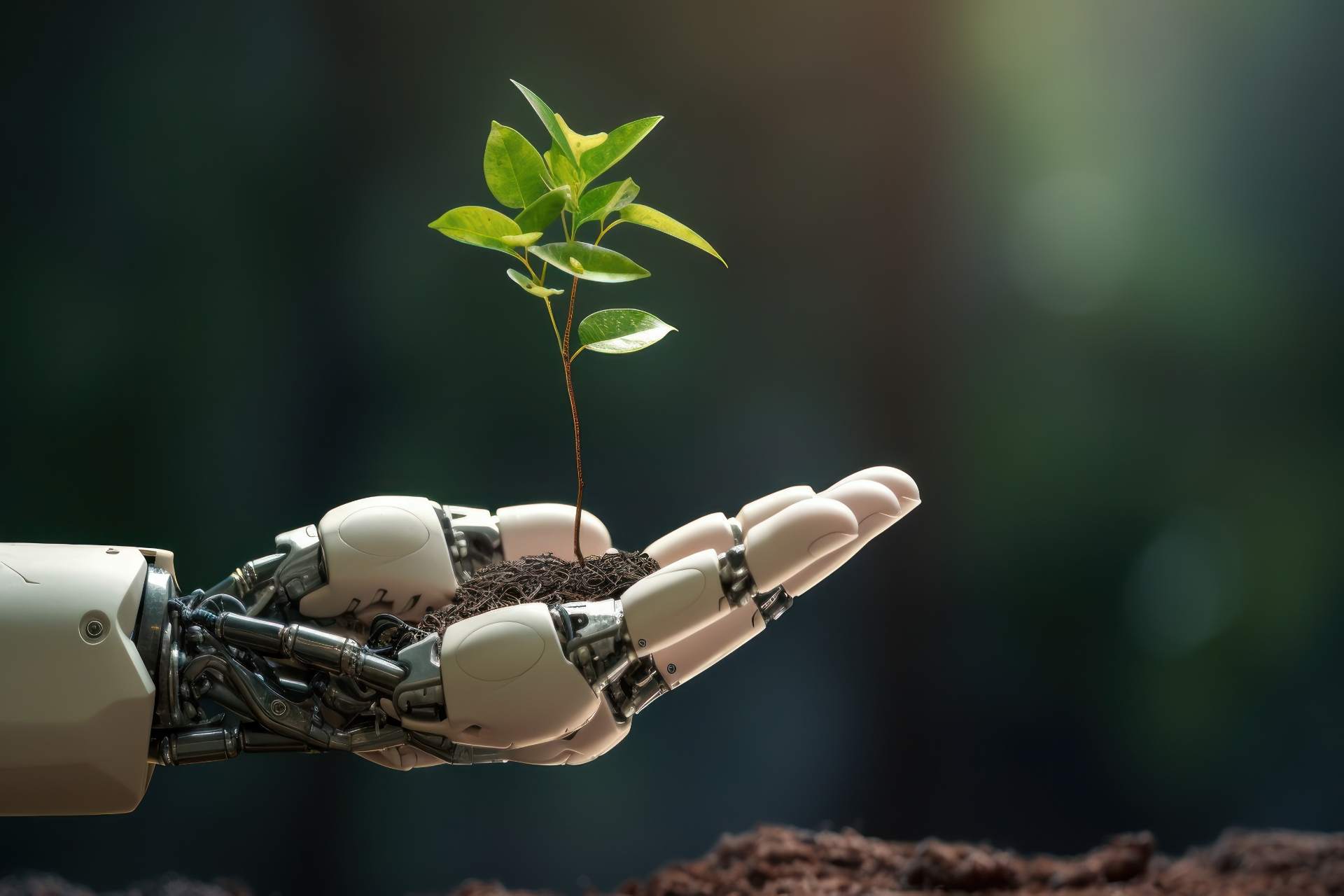In this time where climate change poses an unprecedented threat to our planet, harnessing the power of artificial intelligence (AI) emerges as a game-changing strategy. AI offers innovative solutions to address the multifaceted challenges of climate change, from reducing greenhouse gas emissions to enhancing climate resilience. Here explores the intersection of AI and climate change, highlighting the potential of AI-driven initiatives in mitigating environmental degradation and fostering development.
Climate change, driven primarily by human activities, manifests through rising temperatures, extreme weather events, melting ice caps, and fluctuating precipitation patterns. These changes not only jeopardize ecosystems and biodiversity but also pose significant risks to human health, food security, and socio-economic stability. Tackling climate change requires concerted efforts across various sectors, coupled with innovative approaches that leverage cutting-edge technologies.
Artificial intelligence, with its ability to analyze vast amounts of data, identify patterns, and optimize processes, holds immense promise in addressing climate change. By leveraging AI-powered tools and algorithms, researchers, policymakers, and businesses can gain valuable insights into climate trends, predict environmental impacts, and develop targeted interventions.
One of the key applications of AI in combating climate change is in climate modelling and prediction. Advanced AI algorithms can process complex climate data sets, such as temperature records, atmospheric conditions, and oceanic patterns, to generate more accurate climate models. These models enable scientists to forecast future climate scenarios with greater precision, facilitating informed decision-making and adaptation strategies.

AI technologies play a crucial role in optimizing the efficiency of renewable energy sources, such as solar and wind power. AI-driven algorithms can analyze weather patterns and energy consumption data to predict renewable energy output and optimize energy production and distribution networks. By maximizing the utilization of clean energy resources, AI contributes to reducing reliance on fossil fuels and lowering carbon emissions.
AI-enabled systems offer innovative solutions for resource management and conservation efforts. From monitoring deforestation and biodiversity loss to optimizing water usage and waste management, AI-powered tools can analyze satellite imagery, sensor data, and other sources to identify environmental trends and guide conservation initiatives. By promoting sustainable resource utilization, AI helps mitigate the ecological impact of human activities.
In the face of escalating climate change challenges, harnessing the transformative potential of artificial intelligence is imperative. By leveraging AI-driven solutions, we can enhance our understanding of environmental dynamics, optimize resource management practices, and accelerate the transition to a sustainable, low-carbon future. However, realizing the full benefits of AI in combating climate change requires collaborative efforts, innovative partnerships, and ethical considerations to ensure equitable and inclusive solutions. We can leverage the power of AI to safeguard our planet for future generations.





